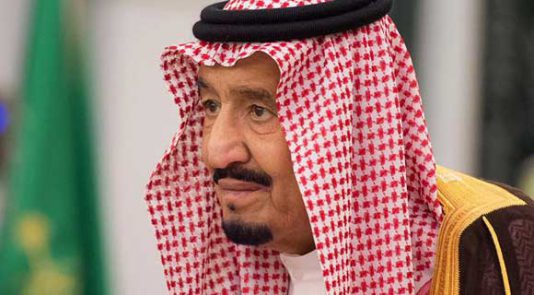Saudi Arabia and the US: Falling Out?

How real are the recent rows between Riyadh and Washington – or is it all about extorting money?
Three important developments in the Saudi-US relationship have raised many questions about the prospect of the two allies falling out. They also indicate that Saudi Arabia is set to face a fresh campaign of financial extortion from the Trump administration.
– First, the warning made by Secretary of State Mike Pompeo in an interview on the CBS channel that his country will never allow Saudi Arabia to become a nuclear power that threatens America and Israel. This came after it was revealed that the kingdom’s first nuclear reactor is close to completion.
– Second, the counter-threat made by Saudi Arabia, reported by Reuters citing three sources, to stop trading oil in US dollars and use other currencies instead of the US passes legislation exposing OPEC members to being sued under US anti-trust laws.
– Third, the US Congress approving legislation to ban US military support for the Saudi-led coalition in Yemen – a fresh slap in the face for Trump, who is likely to veto it.
***
We do not believe that Saudi Arabia is building nuclear reactors in order to produce nuclear warheads, let alone use them against the US or Israel. But there is more than meets the eye to the fact that Pompeo chose to make such a statement about the issue. The same can be said of the Saudi authorities’ threat to abandon the dollar when they own nearly a trillion dollars worth of investments in the US in addition to buying $160 billion worth of US treasury bonds.
It is true that the so-called NOPEC legislation stands little chance of becoming law, as it would set the US against at least 14 other countries. But the Trump administration is unlikely to have threatened to endorse it unless it had ulterior motives, which remain not entirely clear.
After the US administration endorsed the JASTA act — which sanctions states involved in the 9/11 attacks and demands compensation for the victim’s families running into the trillions — the Saudis paid-up the US $450 billion to keep it at bay. The Trump administration’s threat to activate the NOPEC act seems aimed at extorting a few hundred billion more, especially with Congress poised to blame the murder of journalist Jamal Khashoggi directly on Crown Prince Muhammad Bin-Salman.
We wish Saudi Arabia would join the likes of China, Russia, India, Turkey and Iran in trying to end the US dollar’s hegemony over the global economy, and its use as a powerful weapon to destroy the currencies and economies of other states that are at odds the US via the imposition of sanctions. But we doubt the Saudi authorities will go down that road, as that would mean defecting to the anti-American camp and facing punitive measures with very serious consequences.
When Trump threatened to destroy the Turkish economy, the Turkish lire lost half its value in a matter of a few days and forced President Recep Tayyip Erdogan to immediately free the American pastor Andrew Brunson. Now, facing a fresh round of American pressure and threats over his plans to buy Russian S-400 missiles, Erdogan could well cancel the deal in order to avoid another economic crisis.
***
We can smell the scent of a crisis in US-Saudi relations in the air. It is not pungent or powerful, but it is there. And it may increase in the weeks and months to come, when details are unveiled of the ‘Deal of the Century’ aimed at liquidating the Palestinian cause, laying the foundation for the establishment of Greater Israel, and forcing Saudi Arabia and other Gulf states to pay $350 billion as reparations to Arab Jews and fund ‘economic peace’ projects in the Gaza Strip.
Wait and see. When it comes to the US practising extortion, milking the Persian Gulf states’ coffers, and adopting policies that serve Israel’s expansionist plans, our sense of smell is highly developed.
https://www.raialyoum.com/index.php/saudi-arabia-and-the-us-falling-out/
 TheAltWorld
TheAltWorld 
0 thoughts on “Saudi Arabia and the US: Falling Out?”